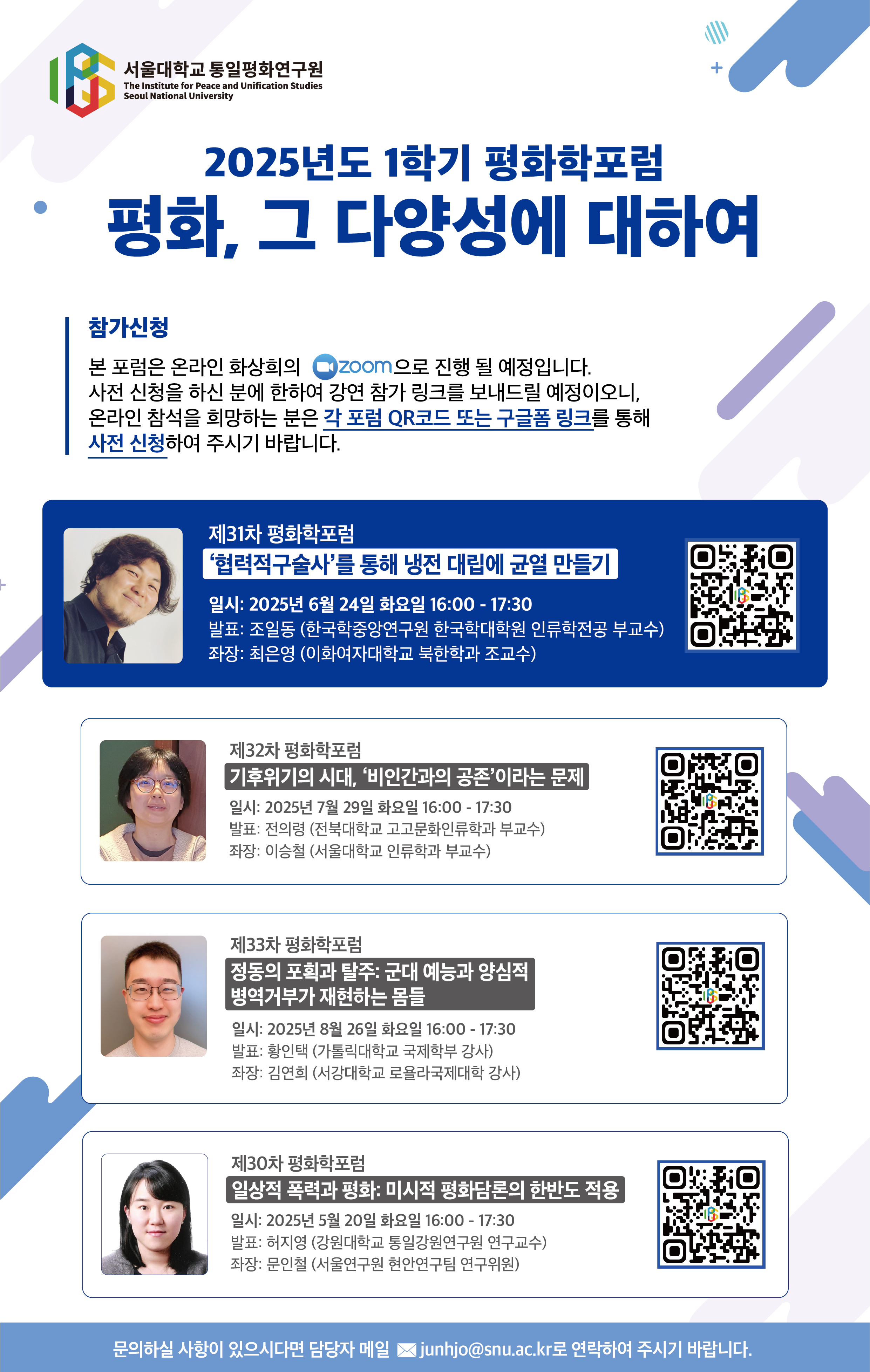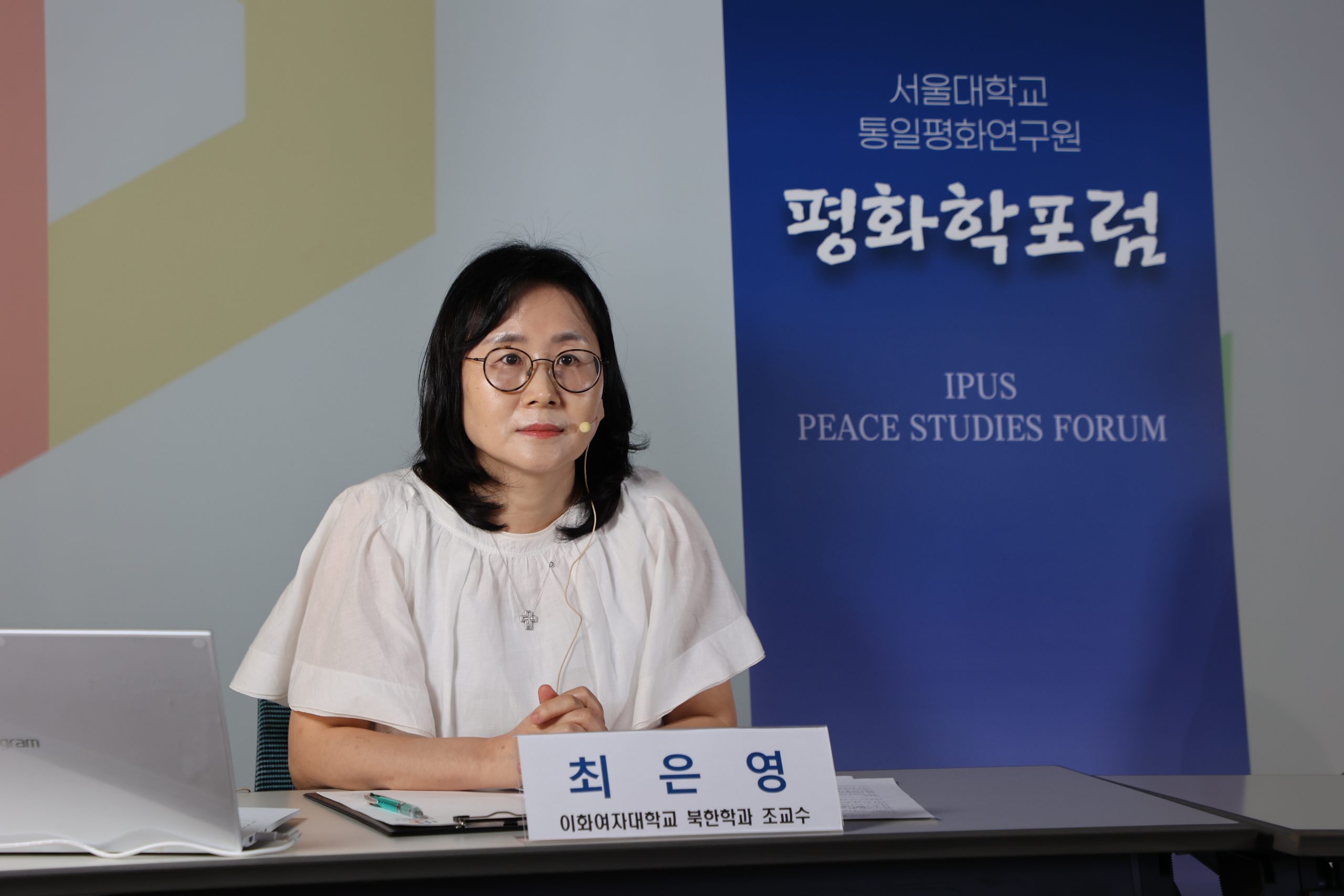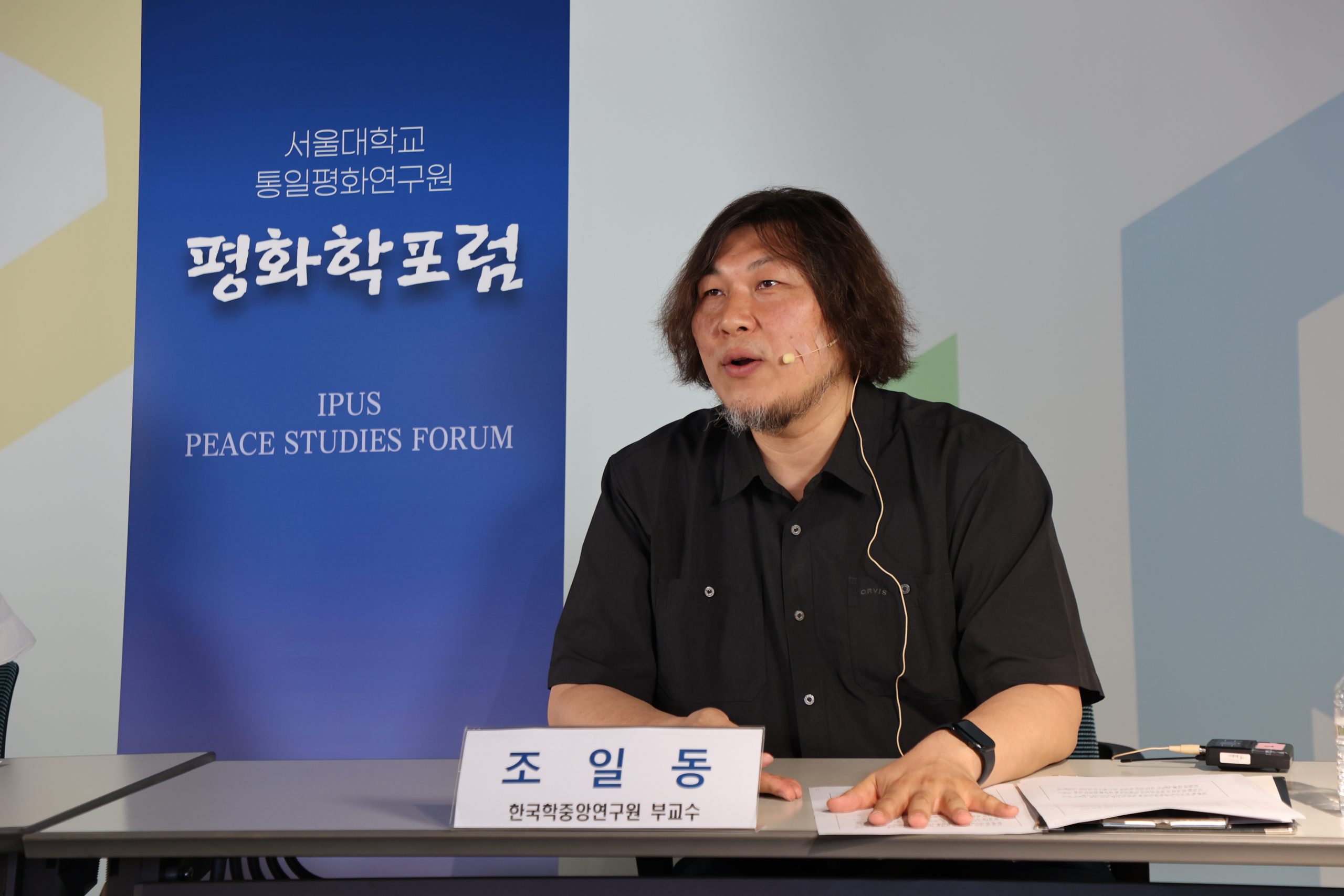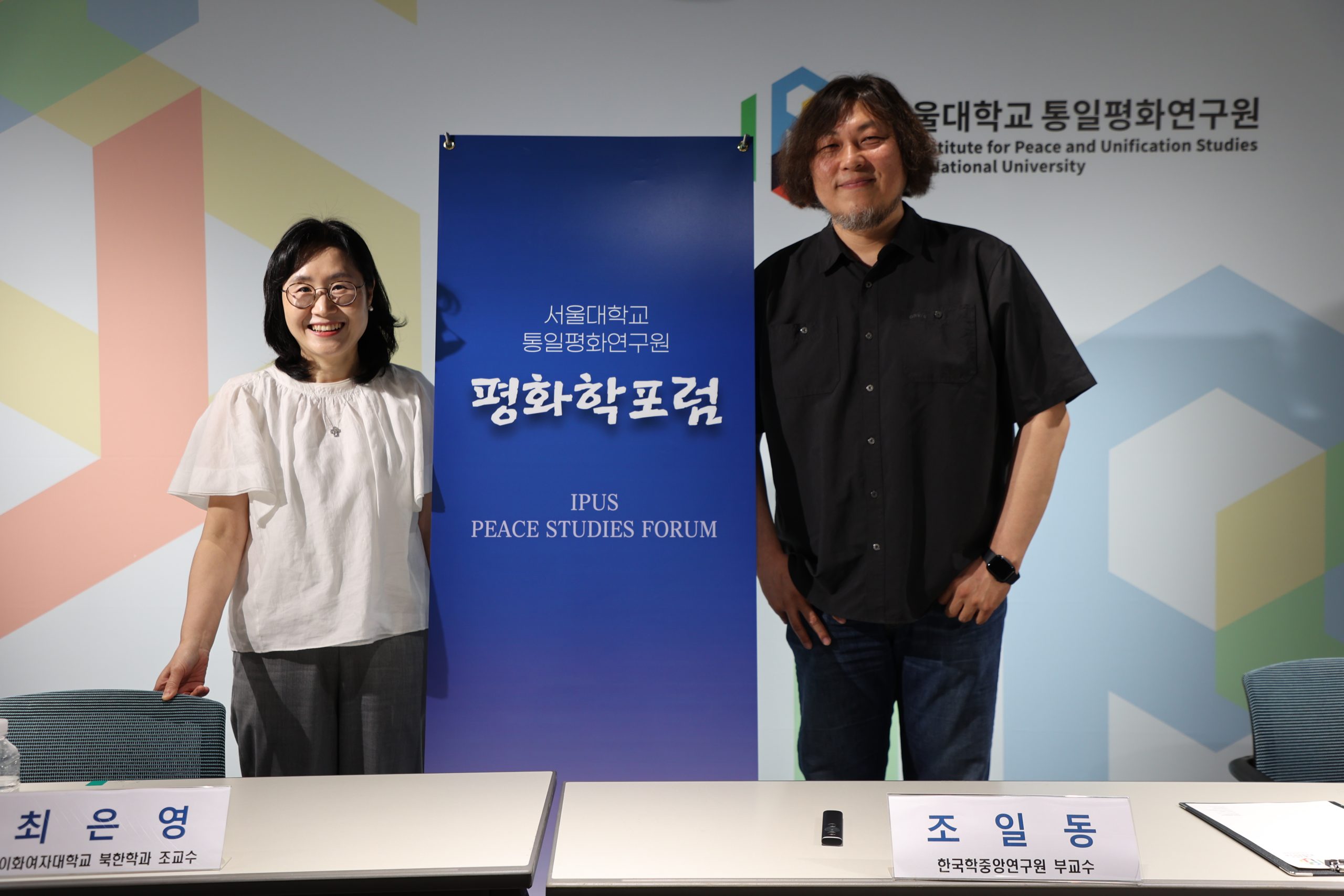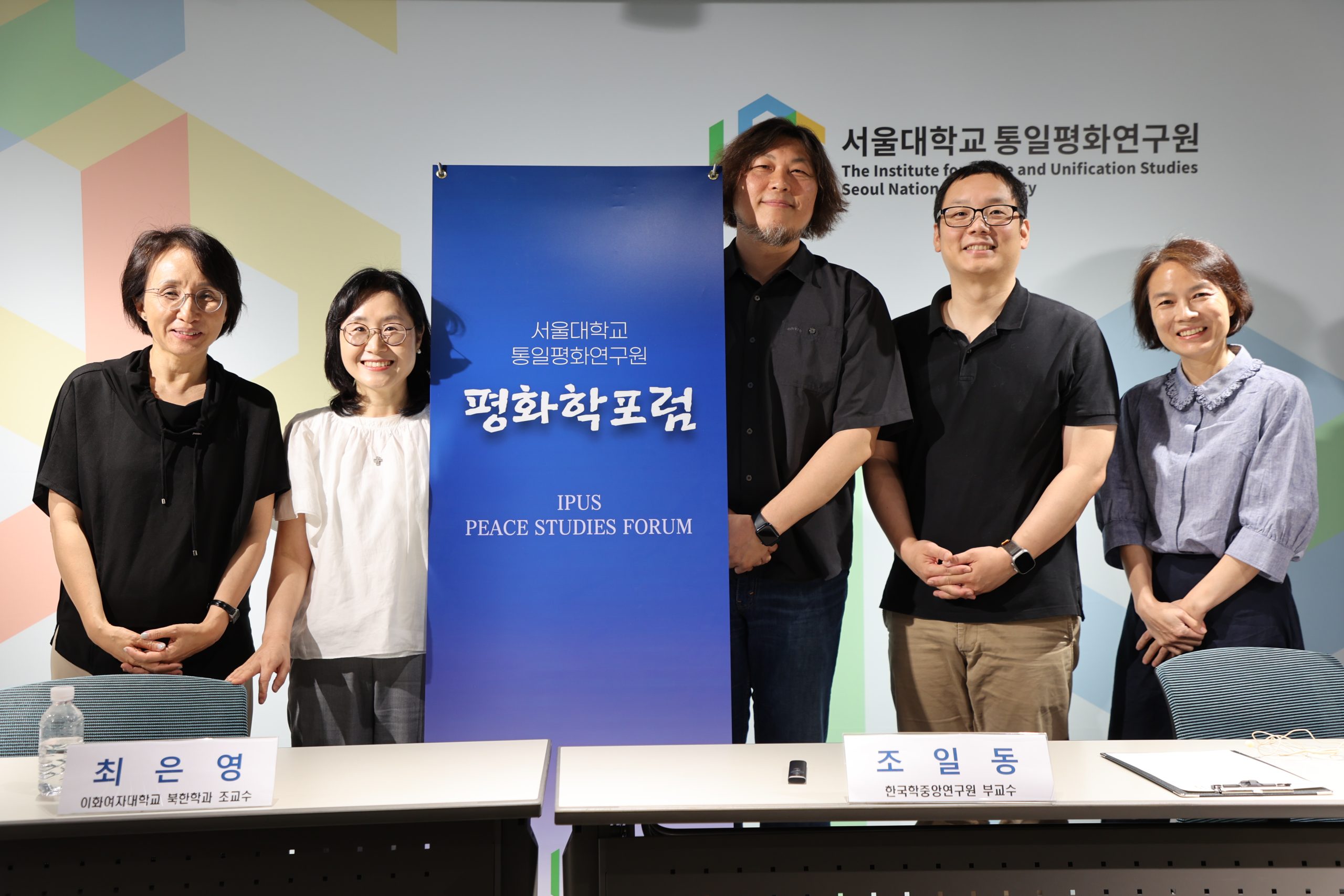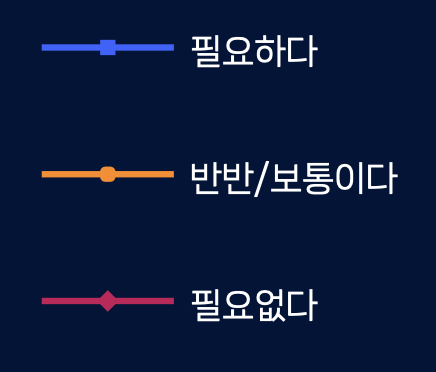[31st Peace Studies Forum] Cracking Cold War Confrontation Through ‘Collaborative Oral Life History’
- Date: Tuesday, June 24, 2025, 16:00-17:30
- Venue: Online Video Conference (ZOOM)
- Presenter: Joe, Ildong (Associate Professor, Graduate School of Korean Studies, The Academy of Korean Studies)
- Chair: Choi, Eunyoung (Assistant Professor, Dept. of North Kroean Studies at Ewha Womans University)
- Theme: Cracking Cold War Confrontation Through ‘Collaborative Oral Life History’
The Institute for Peace and Unification Studies at Seoul National University (IPUS at SNU) held the 31st Peace Studies Forum on Tuesday, June 24, 2025, under the overarching theme of ‘Peace, On Its Diversity.’ The forum featured Professor JOE Ildong from the Graduate School of Korean Studies at the Academy of Korean Studies, who delivered a presentation on the main topic “Cracking Cold War Confrontation Through ‘Collaborative Oral Life History.’” The forum was chaired by Professor Choi Eunyoung from the Department of North Korean Studies at Ewha Womans University, who opened the session with welcoming remarks.
Professor Joe’s lecture focused on the concept and practice of “collaborative oral life history” as a methodology for creating fractures within the colonial and Cold War structures that have shaped the lives of diasporic Koreans. He introduced the “Oral Histories of Multicultural Korean Lives” project, conducted from 2012 to 2020, which brought together six to eight elderly ethnic Koreans from diverse backgrounds for two-day group sessions. During these sessions, participants shared their life stories in an experimental, interactive format.
Unlike traditional oral histories, which document individual narratives in a linear, interview-based format, this collaborative approach emphasized dialogical storytelling. Participants listened to one another, posed questions, and offered responses, generating shared narratives through group interaction. In these ritualized spaces, temporary communities based on equality and mutuality were formed, creating a space for new relationships and affective experiences beyond the existing social order.
Professor Joe especially highlighted the experiences of returnee diasporic Koreans—such as ethnic Koreans from China (Joseonjok), Central Asia (Koryoin), Japan (Zainichi), Sakhalin, and North Korean defectors. These individuals, shaped by the structural violence of (post)colonialism and the Cold War, continue to be perceived as peripheral or “others” in South Korean society. Their narratives often began with family histories and colonial experiences, revealing the persistent presence and legacy of Cold War-era divisions in their lives.
One particularly striking example came from a 2013 session involving Ms. Park Soon-yi, the daughter of a civilian massacre victim, and Ms. Lee Won-sook, the daughter of a former Manchukuo officer alleged to have been involved in wartime atrocities. As their life stories unfolded, the two women discovered an unexpected familial connection and, instead of expressing hostility, engaged in mutual empathy and understanding—suggesting the possibility of human connection beyond ideological, national, and systemic divides.
In conclusion, Professor Joe emphasized that while collaborative oral history may not lead directly to reconciliation or healing, it opens space for dialogue that transcends rigid binaries of victim and perpetrator. It also challenges the singular national narrative of Korean identity, making visible the internal diversity of Korean experiences and suggesting the potential for a new discourse of peace based on inclusivity, plurality, and mutual understanding.

